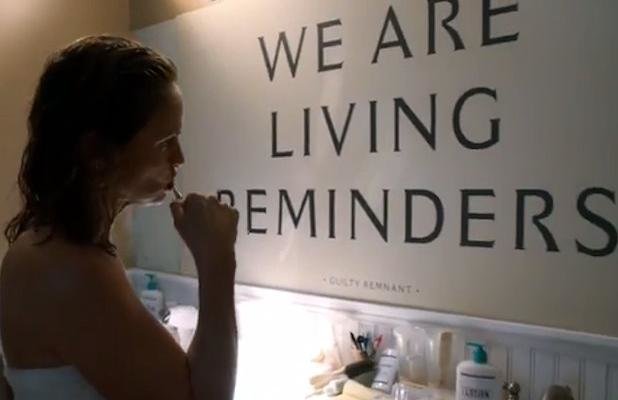HBO's 'The Leftovers': How Is It Different From the Book?
by Andy Neuenschwander
 "The Leftovers" made its grand entry into HBO's Sunday lineup this week, premiering to a good amount of buzz but slightly disappointing numbers, pulling in just 1.8 million viewers. It looks as though the show might not be a huge success like "Game of Thrones" or "True Detective" have been for the premium cable network, but those who read the book might not be surprised.
"The Leftovers" made its grand entry into HBO's Sunday lineup this week, premiering to a good amount of buzz but slightly disappointing numbers, pulling in just 1.8 million viewers. It looks as though the show might not be a huge success like "Game of Thrones" or "True Detective" have been for the premium cable network, but those who read the book might not be surprised.
The show's premise makes it sound like perfect genre television in the post-LOST age of constant mystery: In the very near future, in an event that is eerily similar to the Rapture, roughly 2% of the world's population simply disappears.
If "The Leftovers" were trying to be "LOST" (and with "LOST" creator Damon Lindelof on board, one would expect that), the central focus of the show would be finding out what the big Rapture-like event was, and why it happened. But "The Leftovers" isn't trying to be "LOST." In fact, it's practically the opposite.
"The Leftovers" is, at its core, a story about grief and loss and how individual people and different groups of people deal with those issues. If you're expecting a big reveal about the Rapture, you're almost definitely not going to get it.
But the possibility isn't nil, as "The Leftovers" is already taking some liberties in changing the story from the book. For starters, our protagonist Kevin Garvey was the mostly unassuming town mayor in the book, but is now the chief of police on a descent into alcoholism in the show. Those aggressive confrontations between Kevin and his wife or Kevin and his daughter don't happen in the book, but they do make for more dramatic television.
It looks as though the show is also expanding the role of the Guilty Remnant, the cult that follows odd customs in order to reaffirm their faith after being left behind in what they believe was the Rapture. The big, climactic scene in the pilot that has the Heroes' Day crowd rioting against the G.R. members never happened in the book, but again, it's more exciting to watch. You can probably expect the G.R. to act as more of an antagonist to the law and order that Kevin is attempting to hold onto.
Overall, it seems that the show is making the right choices in creating a more tortured protagonist in Kevin, giving him a much bigger emotional hill to climb over the arc of the series. The premiere of "The Leftovers" was slow at moments, but featured some lovely visual sequences and good performances to make up for the pace. On a network that has the likes of the frenetic "True Blood" and the dragon-wielding "Game of Thrones," the show might need to do a lot to coax HBO fans used to high action over to the comparatively quiet "Leftovers."